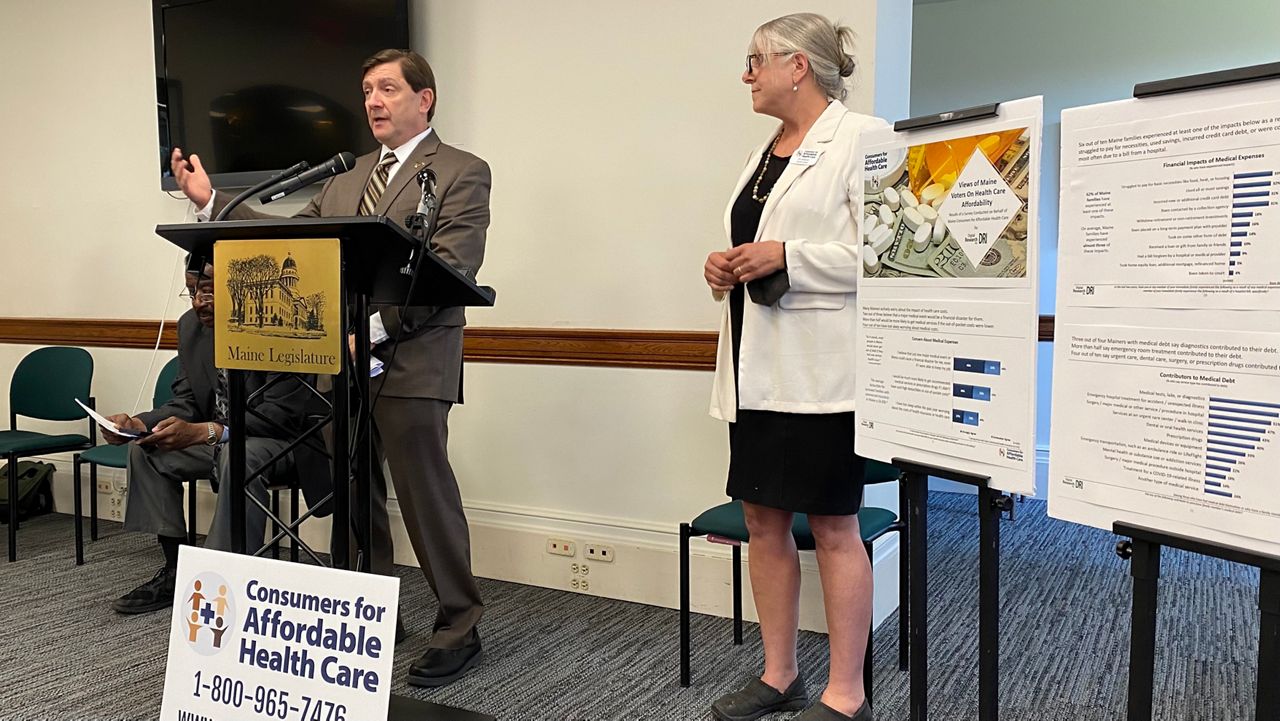More than two-thirds of Mainers say they are one major medical bill away from financial disaster, driving efforts to help consumers save money.
Consumers for Affordable Health Care released survey results Thursday in advance of a public hearing on a bill that would prohibit certain medical facility fees and require annual reports on facility fees that are charged or billed.
Ann Woloson, executive director of the health care group, said fees are part of Mainers’ larger concern about the cost of health care.
The survey of 500 registered Maine voters showed one in three skipped or delayed going to a doctor when they were sick because of concerns about cost and one in four cut pills in half or skipped doses to save money.
Nearly one in three Mainers were contacted by a collection agency within the past two years, with 83% saying it was because of a hospital bill, Woloson said.
And when it comes to facility fees, their consumer hotline gets calls from many Mainers.
She said one woman reported getting two facility fees from a walk-in clinic when she needed help with a knee injury. Another family tried to get their son into a pediatrician but were sent to an urgent care clinic.
They received a bill for $1,900, which included a facility fee. A trip to the pediatrician would have cost about $200, she said.
Senate President Troy Jackson (D-Allagash), lead bill sponsor, called the facility fees “insidious.”
“It seems that you can’t navigate the health care system without getting nickel and dimed at every turn, even if you have health insurance and have done your research,” he said.
Part of the problem is that the facility fees can vary widely depending on whether a patient visits a hospital, a clinic or a physician’s office, he said.
“This bill will help reduce that sticker shock that many Mainers experience when seeking health care when they are in need and not feeling that everyone is out to get you when you are not feeling well,” he said.
Dr. Richard Evans, who serves on the board of Consumers for Affordable Health Care, said patients are confused about the costs because they are so different from one setting to another.
“Until Congress gets a spine to address this issue directly, the states are going to have to do as best they can to mitigate the circumstances,” he said.









)